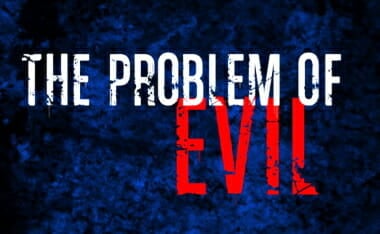We already know that ISIS is a terror group claiming Islam as its source of inspiration. In this video we revisit some questionable events in the life of Islam’s founder.
Rape


The Clintons’ War on Women
Author, former campaign aide and political pundit Roger Stone sits down with John Phillips to discuss his new book “The Clintons’ War on Women”. Spanning decades from Nixon’s impeachment to Hillary Clinton’s strong-arming of rape accusers, Roger Stone takes a critical look back at one of America’s most powerful and dangerous families. Join us for for this special three-part interview and see exactly what all the Clintons have been hiding and the lengths they’re willing to go to protect their dynasty.

Pools Ban Male Migrants ~ Germany
For some of my own thinking on where this is headed, read my commentary here.
- “In recent years, we sold about 150 to 200 pepper sprays over the course of a year. Now, not a single day goes by where we sell less than 100 pepper sprays”
Jihad Watch notes this trend as well:
This will work. Just picture it: “Mahmoud, we have been wrong. Unveiled Infidel women are not ‘uncovered meat‘ for us to enjoy at will — just look at this comic book!”
The self-delusion of Western authorities apparently has no bounds.
[….]
A town in Germany has banned male asylum seekers from public swimming pools after complaints from women that they were being harassed by migrants.
A spokesman for the local government of Bornheim said on Friday that the ban on male asylum seekers above the age of 18 came after six people filed complaints “over the sexually offensive behaviour of some migrant men at the pool”.
The measure aimed at “making it clear to the men that the rights of women in Germany is inviolable”, he added….
The below video of a woman being drug into a subway to be raped by Muslims is graphic… you do not see horror… but you hear it and want the worse to befall the Muslims committing the crime (h/t, Creeping Sharia).
Meanwhile in Lithuania a 15 year old Lithuanian boy, Arminas Pileckas, is stabbed to death after he stopped a Syrian refugee/classmate from sexually assaulting a female classmate.

Muslim Gang Members Threaten French Man… Surprise!
Wintery Knight has an excellent post on how guns cut crime… ending the post with the above video and the his concluding thoughts:
Again, no shots were fired. Nobody was hurt. That’s why people own guns – to avoid violence, not to cause violence.
Learn about the issue
To find the about guns and self-defense, look in the academic literature. Here are two books I really like for that.
- More Guns, Less Crime by Dr. John R. Lott (University of Chicago Press, 3rd ed.)
- Guns and Violence by Dr. Joyce Lee Malcolm (Harvard University Press)
Both of those books make the case that permitting law-abiding citizens to own firearms for self-defense reduces the rate of violent crime.

Meanwhile, in Germany, women are dragged into subways to be raped by “migrants” [e.g., Muslims] (h/t, Creeping Sharia).
I bet these German’s wish they had a 2nd Amendment:

The Rape of Sweden (Literally) ~ Pat Condell

More Islamic Rape Stories from Sweden
(Moonbattery) Is there any reason to expect savages to suddenly become civilized after they are imported to Sweden? Remember that the god they worship approves of even the most barbaric behavior, so long as it is inflicted on the unbelievers. (More on Islamic Rape here)

Hear Atheists Themselves on Evil and Absolutes [UPDATED!]
I wish to start out with an excerpt from a chapter in my book where I use two scholarly works that use Darwinian naturalism as a guide to their ethic:
- Dale Peterson and Richard Wrangham, Demonic Males: Apes and the Origins of Human Violence (New York, NY: Houghton Mifflin Harcourt Publishing, 1997).
- Randy Thornhill and Craig T. Palmer, A Natural History of Rape: Biological Bases of Sexual Coercion (Cambridge: MIT Press, 2000).
My incorporation of these works into my book (quote):
“Lest one think this line of thinking is insane, that is: sexual acts are something from our evolutionary past and advantageous; rape is said to not be a pathology but an evolutionary adaptation – a strategy for maximizing reproductive success….. The first concept that one must understand is that these authors do not view nature alone as imposing a moral “oughtness” into the situation of survival of the fittest. They view rape, for instance, in its historical evolutionary context as neither right nor wrong ethically. Rape, is neither moral nor immoral vis-à-vis evolutionary lines of thought, even if ingrained in us from our evolutionary paths of survival. Did you catch that? Even if a rape occurs today, it is neither moral nor immoral, it is merely currently taboo. The biological, amoral, justification of rape is made often times as a survival mechanism bringing up the net “survival status” of a species, usually fraught with examples of homosexual worms, lesbian seagulls, and the like.”
(pp. 7-9 of Roman-Epicurean-ism-Natural-Law-and-Homosexuality)
Now, hear from other atheist and evolutionary apologists themselves in regard to the matter:
Richard Dawkins
(h/t: TrueFreeThinker) – A Statement Made by an atheist at the Atheist and Agnostic Society:
Some atheists do believe in ethical absolutes, some don’t. My answer is a bit more complicated — I don’t believe that there are any axiological claims which are absolutely true, except within the context of one person’s opinion.
That is, beauty is in the eye of the beholder, and so are ethics. So, why is Adolf Hitler wrong? Because he murdered millions, and his only justification, even if it were valid, was based on things which he should have known were factually wrong. Why is it wrong to do that? Because I said so. Unless you actually disagree with me — unless you want to say that Adolf Hitler was right — I’m not sure I have more to say.
[side note] You may also be aware that Richard Dawkins stated,
…I asked an obvious question: “As we speak of this shifting zeitgeist, how are we to determine who’s right? If we do not acknowledge some sort of external [standard], what is to prevent us from saying that the Muslim [extremists] aren’t right?”
“Yes, absolutely fascinating.” His response was immediate. “What’s to prevent us from saying Hitler wasn’t right? I mean, that is a genuinely difficult question. But whatever [defines morality], it’s not the Bible. If it was, we’d be stoning people for breaking the Sabbath.”
I was stupefied. He had readily conceded that his own philosophical position did not offer a rational basis for moral judgments. His intellectual honesty was refreshing, if somewhat disturbing on this point….
Stated during an interview with Larry Taunton, “Richard Dawkins: The Atheist Evangelist,” by Faith Magazine, Issue Number 18, December 2007 (copyright; 2007-2008)
Lewis Wolpert
From the video description:
Atheists Trying to Have Their Cake and Eat It Too on Morality. This video shows that when an atheist denies objective morality they also affirm moral good and evil without the thought of any contradiction or inconsistency on their part.
Dan Barker
This is from the video Description for the Dan Barker video below:
The atheist’s animal-level view of “morality” is completely skewed by dint of its lack of objectivity. In fact, the atheist makes up his own personal version of “morals” as he goes along, and this video provides an eye-opening example of this bizarre phenomenon of the atheist’s crippled psyche:
During this debate, the atheist stated that he believed rape was morally acceptable, then he actually stated that he would rape a little girl and then kill himself — you have just got to hear his psychotic words with your own ears to believe it!
He then stammered and stumbled through a series of ridiculously lame excuses for his shameful lack of any type of moral compass.
To the utter amazement of his opponent and all present in the audience, the gruesomely amoral atheist even goes so far as to actually crack a sick little joke on the subject of SERIAL CHILD-RAPE!
:::shudders:::
Meanwhile, the Christian in the video gracefully and heroically realizes the clearly objective moral values that unquestionably come to humanity by God’s grace, and yet are far beyond the lower animal’s and the atheist’s tenuous mental grasp. Be sure to keep watching until the very end so that you can hear the Christian’s final word — it’s a real knuckle-duster!
Atheist dogma™ not only fails to provide a stable platform for objective human morality for its adherent — it precludes him even the possibility. It’s this very intellectual inability to apprehend any objective moral values that leads such believers in atheist dogma™ as Hitler, Stalin, Mao, and Dahmer to commit their horrific atheistic atrocities.
Any believer in atheist dogma™, given sufficient power, would take the exact same course of action that Hitler did, without a moment’s hesitation.
Note as well that evolutionary naturalism has very dogmatic implication, IF — that is — the honest atheist/evolutionist follow the matter to their logical conclusions, via the ineffable Dr. Provine:
William Provine
Atheist and staunch evolutionist Dr. William Provine (who is often quoted by Richard Dawkins) admits what life has in stored if Darwinism is true. The quote comes from his debate here with Dr. Phillip E. Johnson at Stanford University, April 30, 1994.

Political Correctness Makes Police Turn Blind Eye (UPDATED 2x)
National Review via Newsmax: What a horrible story of political correctness!
I have posted on this before:
- BBC Avoids Central Facts On Pakistan Infanticide And Child Rape (Sept 2013);
- Russian TV Mentions `Muslim` Religion Where the U.K. News Does Not (June 2013);
- BBC: 7 more Muslims arrested – especially brutal child rape gang (May 2013);
- 29 Somali MUSLIMS indicted for kidnapping, raping, and selling underage white girls (April 2012);
- Pat Condell on Islamic Cultural Terrorism (July 2011);
- Oslo, Norway – Almost ALL Sexual Assaults Involving Rape In Past 5 Years Committed By Muslims (May 2011).
Here are more examples of how political correctness emboldens those who wish to harm others and to use our system to destroy it from within.
You can write that as the epitaph of Great Britain. The British government kowtowed to Islamic supremacists “for fear of being thought as racist.” The British government hounded counter-jihadists domestically and banned ones from the U.S. from entering the country “for fear of being thought as racist.” The British government worked with Islamic supremacists it mistook for “moderates” “for fear of being thought as racist.” The British government funded liars who exaggerated claims of Muslim victimhood “for fear of being thought as racist.” The British government for years ignored an Islamic supremacist takeover of public schools “for fear of being thought as racist.”
As Britain collapses into inevitable chaos, civil war, and jihad in the streets, Blair, Cameron, May and the rest, and all the dreary Sarah Browns among their dreary, dreary supporters, can congratulate themselves that as they bring down a once-great civilization upon their own heads, at least no one will think that they were “racist.”
I will replace the “Asian” with “Arab Muslims” for accuracy. Here are the articles (h/t to a friend, Jim G!):
Rotherham sex abuse scandal: 1,400 children exploited by Arab Muslim gangs while authorities turned a blind eye
Damning report lays bear 16 years of child sexual exploitation in Rotherham and accuses council bosses and police chiefs of ‘blatant’ failings
More than 1,400 children were sexually abused during a period of over 16 years by gangs of paedophiles after police and council bosses turned a blind eye for fear of being labelled racist, a damning report has concluded.
Senior officials were responsible for “blatant” failures that saw victims, some as young as 11, being treated with contempt and categorised as being “out of control” or simply ignored when they asked for help.
In some cases, parents who tried to rescue their children from abusers were themselves arrested. Police officers even dismissed the rape of children by saying that sex had been consensual.
Downing Street on Tuesday night described the failure to halt the abuse in Rotherham, South Yorkshire, as “appalling”.
[….]
Victims were gang raped, while others were groomed and trafficked across northern England by groups of mainly Arab Muslim men.
When children attempted to expose the abuse, they were threatened with guns, warned that their loved ones would be raped and, in one case, doused in petrol and told they would be burnt alive.
Prof Jay wrote: “No one knows the true scale of child sexual exploitation in Rotherham over the years. Our conservative estimate is that approximately 1,400 children were sexually exploited over the full inquiry period, from 1997 to 2013.
“It is hard to describe the appalling nature of the abuse that child victims suffered. They were raped by multiple perpetrators, trafficked to other towns and cities in the north of England, abducted, beaten, and intimidated.”
[….]
Tuesday’s report concluded that by far the majority of perpetrators were Arab Muslim men, and said council officials had been unwilling to address the issue for fear of being labelled racist. [e.g., Islamophobic]
In another article, these “Asian” men are named by ethnicity:
…In Rotherham the “majority” of known perpetrators were of Pakistani heritage, the report says, which led to police and council workers “tiptoeing” around the problem.
In the council and the police there was a perception among staff that they should “downplay the ethnic dimensions of child sexual exploitation”.
Frontline staff became confused as to what they were supposed to say and do and what would be interpreted as “racist“…

Richard Dawkins Espouses The Value of Life via Evolutionary Values
I say often that the ONLY ethic — or moral — in evolutionary naturalism is this: “survival of the fittest.” Dawkins has previously said this:
- “What’s to prevent us from saying Hitler wasn’t right? I mean, that is a genuinely difficult question.”
What he is really saying is that it is not hard to support the Nazi’s pushing the invalid and Down’s patients off of third story hospital balconies… but it is hard to call THIS an absolute moral wrong.
WHY?
BECAUSE survival of the fittest IS the ethic to achieve. If rape helps the species survive, it’s awesome! (From a chapter via my book):
…sexual acts are something from our evolutionary past and advantageous;[46] rape is said to not be a pathology but an evolutionary adaptation – a strategy for maximizing reproductive success.[47]….
[….]
The first concept that one must understand is that these authors do not view nature alone as imposing a moral “oughtness” into the situation of survival of the fittest. They view rape, for instance, in its historical evolutionary context as neither right nor wrong ethically.[49] Rape, is neither moral nor immoral vis-à-vis evolutionary lines of thought, even if ingrained in us from our evolutionary paths of survival.[50] Did you catch that? Even if a rape occurs today, it is neither moral nor immoral, it is merely currently taboo.[51] The biological, amoral, justification of rape is made often times as a survival mechanism bringing up the net “survival status” of a species, usually fraught with examples of homosexual worms, lesbian seagulls, and the like.[52]
[46] Remember, the created order has been rejected in the Roman society as it is today. This leaves us with an Epicurean view of nature, which today is philosophical naturalism expressed in the modern evolutionary theories such as neo-Darwinism and Punctuated Equilibrium.
[47] Randy Thornhill and Craig T. Palmer, A Natural History of Rape: Biological Bases of Sexual Coercion (Cambridge: MIT Press, 2000), 71, 163. See also: Dale Peterson and Richard Wrangham, Demonic Males: Apes and the Origins of Human Violence (New York, NY: Houghton Mifflin Harcourt Publishing, 1997).
[49] Nancy Pearcy, Total Truth: Liberating Christianity from Its Cultural Captivity (Wheaton: Crossway Books, 2004), 208-209.
[50] Steven Pinker, The Blank Slate: The Modern Denial of Human Nature (New York: Penguin, 2002), 162-163.
[51] Norman L. Geisler and Frank Turek, I Don’t Have Enough Faith to be an Atheist (Wheaton: Crossway Books, 2004), 176-180.
[52] Daniel C. Dennett, Darwin’s Dangerous Idea: Evolution and the Meaning of Life (New York: Touchstone Book, 1995), 492.
Some of the responses, via Twitchy, were wonderful!







The “Rape Culture” Myth (George Will and Heather Mac Donald)
Lies of the Left
Dennis Prager reads from Heather Mac Donald’s article in from The City Journal about the “rape culture.” As usual, the left over-exaggerates… and what parent would put their daughter in AP classes to prepare them for the worse crime wave in human history, which is: one-in-five women are rapped at college. OBVIOUSLY the definition is the issue.
As society gets further away from Judeo-Christian norms… more-and-more regret will rear its head from drunken hook-ups.
For more clear thinking like this from Dennis Prager… I invite you to visit: http://www.dennisprager.com/
A great back-and-forth between George Will and some Democrat Senators who — as HotAir points out in George’s response to their asinine letter, these “Senators were likely faced with the difficult task of flipping back and forth to dictionary.com to translate Will’s writing, so we should probably have some sympathy.” HotAir continues:
- For the entire time I have been writing I have cited George Will as one of the top five wordsmiths of our generation. Whether you agree with him or not… whether you think he leans too far in one philosophical direction or the other… there is no denying that Will is a master of the English language and flexes it like Mr. Olympia in the final pose-off.
Here is more from HotAir on the fun tiff:
In case you missed the origins of this story earlier in the week, George Will took to his usual platform at the Washington Post with some words of caution regarding federal government intervention regarding sexual assaults on the nation’s college campuses. In it, he attempted to inject corrective remedies into some of the hyperbole currently engulfing the topic. Of course, in his usual fashion, Will led off with a paragraph which seemed designed to poke a stick in a few wasp nests.
Colleges and universities are being educated by Washington and are finding the experience excruciating. They are learning that when they say campus victimizations are ubiquitous (“micro-aggressions,” often not discernible to the untutored eye, are everywhere), and that when they make victimhood a coveted status that confers privileges, victims proliferate. And academia’s progressivism has rendered it intellectually defenseless now that progressivism’s achievement, the regulatory state, has decided it is academia’s turn to be broken to government’s saddle.
A careful reading of Will’s full editorial would show that he was essentially making two points. First, the “math” being cited to define the number of sexual assaults taking place was unfit for a 3rd grade Common Core tutorial. Second, Will noted that expanding and inflating the definition of sexual assaults to include micro-agressions – such as a boy staring for too long at a young coed with a low cut blouse – would tend to dilute the pool of actual assaults and diminish the seriousness of the real problem.
Such a stance brought the usual list of suspects up on their hind legs and into an immediate attack posture. This culminated in a coalition of Democratic Senators (Feinstein, Blumenthal, Tammy Baldwin and Robert Casey) penning a letter to the WaPo, chastising them for allowing Will to breath the same air as the rest of us.
After running their letter and litany of complaints, this weekend the Post ran a rare response from George Will….
Here is a larger portion of George Will’s response from the WASHINGTON POST:
The administration asserts that only 12 percent of college sexual assaults are reported. Note well: I did not question this statistic. Rather, I used it.
I cited one of the calculations based on it that Mark Perry of the American Enterprise Institute has performed {link}. So, I think your complaint is with the conclusion that arithmetic dictates, based on the administration’s statistic. The inescapable conclusion is that another administration statistic that one in five women is sexually assaulted while in college is insupportable and might call for tempering your rhetoric about “the scourge of sexual assault.”
As for what you call my “ancient beliefs,” which you think derive from an “antiquated” and “counterintuitive” culture, allow me to tell you something really counterintuitive: I think I take sexual assault much more seriously than you do. Which is why I worry about definitions of that category of crime that might, by their breadth, tend to trivialize it. And why I think sexual assault is a felony that should be dealt with by the criminal justice system, and not be adjudicated by improvised campus processes.
Read the senators’ letter here, and Will’s response in full here.

After laying out a detailed case of what by Julia Pollak experienced in the military as a woman, she goes on to compare this experinece to her experience at Harvard. A MUST read, great article! I pick up as she enters the comparison: 
…Compare all this to the model for sexual assault prevention and response at the institution I belonged to before the military—Harvard College. There, complaints of sexual assault are filed with the Administrative Board, or “Ad Board,” comprised of deans and faculty members. The written policies regarding sexual assault are far less favorable to victims, requiring non-consent to be expressed “verbally or physically” and requiring the Ad Board members to be “sufficiently persuaded” that an assault occurred.
In stark contrast to the stories I’ve heard about military perpetrators landing up in Leavenworth Prison, Harvard’s history of dealing with sexual assault cases might easily give more encouragement to perpetrators than victims.
During my time at Harvard College, between 2005 and 2009, I had one friend who was sexually assaulted by a fellow student, another who was beaten by her boyfriend (a fellow student), and another who was involved in a highly improper and abusive relationship with a professor. Not one of these incidents was ever reported.
In the five years from 2005 to 2010, according to the Harvard Crimson, eight cases of sexual misconduct were brought before Harvard’s Ad Board. Only three perpetrators were required to withdraw from Harvard College for at least six months, and none received a permanent expulsion.
So perhaps, instead of being a punching bag on Capitol Hill, the military should be studied as a model for sexual assault awareness, prevention, and response policy, especially among young people aged 18 to 24.
To place the military’s sexual assault problem in a wider context, here are some illustrative numbers. According to an anonymous survey, service members may have experienced as many as 26,000 instances of “unwanted sexual contact” in 2012. In other words, about 6.1% of female service members and 1.2% of male service members experienced unwanted sexual contact that year. Note that this number includes a substantial number of cases that occurred before the victim entered the military, as well as cases involving civilian perpetrators.
Although it is difficult to make direct comparisons due to differences in the way survey questions are asked, rates of sexual assault outside the military appear to be similar—if not higher. A 2010 study by the Centers for Disease Control (CDC) found that 6.7% of all women had experienced sexual violence, rape, or attempted rape in the 12-month period preceding the study. Since sexual assault rates are highest among the young, the CDC finding implies that the incidence of sexual assault is even higher than 6.7% among military-aged women. The CDC also found that between 20 and 25 percent of women, and approximately 6.1 percent of men, are victims of an attempted or completed sexual assault while they are in college.
And perhaps that model should be exported to the nation’s college campuses, where sexual assault is equally prevalent but far more hidden; where sexual assault policies and practices are outdated; and where the fear of litigation or falling rankings makes university administrations reluctant to expel offenders and eager to brush the problem under the carpet.

Liberal Activist Is Brutally Raped by a Black Man ~ Blames White Men
(PJ MEDIA) …In a free society, an individual bears sole responsibility for his actions. A whole race, gender, or generation does not bear guilt for the sins of some or even of many in that group of people. It’s unfair and wrong.
But liberals don’t believe this. For example, a white person carries the shame of slavery even if his family members never owned slaves and even if he himself worked to free those in bondage. White equals guilt. Or, as another example, “society” is guilty for creating the psychosexual environment in which frustrated men must rape in order to feel dominant. And then there are the more mundane things like “if she weren’t poor, she wouldn’t be compelled to steal that Ralph Lauren dress.”
A criminal wouldn’t be a criminal if he were loved more and society supported him, therefore it’s society’s fault that he is committing the fill-in-the-blank crime.
So who is to blame, then, when a black man rapes a woman? Would it be the rapist? No….
Liberal activist Amanda Kijera traveled to Haiti on a mission to prove that the portrayal of black men as “savages” was not accurate. Kijera was brutally raped. Of course, she blamed the white man for the violence.
Gateway Pundit has this about the story:
Amanda Kijera was on a humanitarian trip to Haiti, when she was violently raped by a black man. The act was both coincidental and devastating, as Kijera was actually in Haiti to dispel the “myths” that violence against women on the island was overstated by women’s rights organizations. The intention of Kijera’s trip was to push back on the portrayal of black men as “savages” in the media. Her hope was that she would eliminate misconceptions and push back against common views imposed by “the man.” However, Kijera’s trip took a turn for the worse when one of the men she had worked to protect cornered her on the rooftop, and raped her numerous times.
“The experience was almost more than I could bear,” Kijera wrote about the incident, “I pleaded with him to honor my commitment to Haiti, to him as a brother in the mutual struggle for an end to our common oppression, but to no avail. He didn’t care.”
[….]
She also went on to argue that it is up to the United Nations to support people who are forced to bear the brunt of black male aggression. Kijera makes the outrageous claim that dependency on white people causes them to act out against them. She alludes that this was the reason for her attack.
Some interesting points made by Sons Of Montesquieu
Before Its News shot me to Occidental Dissent. This website is a racist website and I DO NOT RECOMMEND IT!! But this led to a forum with the same info:
We are not your weapons – we are women
By Amanda Kijera, civic journalist and activist in Haiti
Two weeks ago, on a Monday morning, I started to write what I thought was a very clever editorial about violence against women in Haiti. The case, I believed, was being overstated by women’s organizations in need of additional resources. Ever committed to preserving the dignity of Black men in a world which constantly stereotypes them as violent savages, I viewed this writing as yet one more opportunity to fight “the man” on behalf of my brothers. That night, before I could finish the piece, I was held on a rooftop in Haiti and raped repeatedly by one of the very men who I had spent the bulk of my life advocating for.
It hurt. The experience was almost more than I could bear. I begged him to stop. Afraid he would kill me, I pleaded with him to honor my commitment to Haiti, to him as a brother in the mutual struggle for an end to our common oppression, but to no avail. He didn’t care that I was a Malcolm X scholar. (he didn’t see her angel halo, Ed.) He told me to shut up, and then slapped me in the face. Overpowered, I gave up fighting halfway through the night.
Accepting the helplessness of my situation, I chucked aside the Haiti bracelet I had worn so proudly for over a year, along with it, my dreams of human liberation. Someone, I told myself, would always be bigger and stronger than me. As a woman, my place in life had been ascribed from birth. A Chinese proverb says that “women are like the grass, meant to be stepped on.” The thought comforted me at the same time that it made me cringe.
[….]
Women are not the source of their oppression; oppressive policies and the as-yet unaddressed white patriarchy which still dominates the global stage are. Because women–and particularly women of color–are forced to bear the brunt of the Black male response to the Black male plight, the international community and those nations who have benefitted from the oppression of colonized peoples have a responsibility to provide women with the protection that they need.
One can only get this point of view from spending (going into debt) at a rate of $30,000 a year via an “ivy league” education. Elitism in its purest form passed on by university professors.

European Happiness and Crime Rates Compared To America’s
“It’s become common knowledge that Denmark, Sweden and Norway routinely rank highest on lists of the world’s happiest nations…” (The World’s Happiest Countries Take The Most Antidepressants)
(As usual, all graphics/pics are linked to other resources.) Often I hear about how much lower the crime rate is in Europe, at times having the “Peace Index” thrown into the conversation without any meditation on what exactly this “index” says. Happiness is another moniker often thrown around without any comparisons of “what constitutes ‘happiness’.” So lets deal first with happiness, and then get into the peace index and gun-control/stats.
HAPPINESS
What constitutes happiness between the States and Europe? Let’s delve — quickly — into this topic via Forbes (2006):
The average American works 25 hours a week; the average Frenchman 18; the average Italian a bit more than 16 and a half. Even the hardest-working Europeans–the British, who put in an average of 21 and half hours–are far more laid-back than their American cousins.
Compared with Europeans, Americans are more likely to be employed and more likely to work longer hours–employed Americans put in about three hours more per week than employed Frenchmen. Most important, Americans take fewer (and shorter) vacations. The average American takes off less than six weeks a year; the average Frenchman almost 12. The world champion vacationers are the Swedes, at 16 and a half weeks per year.
Of course, Europeans pay a price for their extravagant leisure. The average Frenchman produces only three-quarters as much as the average American, even though productivity per hour is slightly higher in France.
This raises more than one interesting question. First, why do Americans choose to work so much? (Or, if you prefer, why do Europeans choose to work so little?) Second, who’s happier?…..
Why indeed.
I think this is answered a bit later in a newer poll/study, found at Live Science (see also FoxNews):
Americans really do love to work, it seems, while Europeans are much happier if they skip burning the midnight oil in favor of leisure. That’s according to a new study finding longer work hours make Europeans unhappy while Americans get a very slight (albeit not statistically significant) bliss boost from the extra grind.
“Those who work longer hours in Europe are less happy than those who work shorter hours, but in the U.S. it’s the other way around,” said study author Adam Okulicz-Kozaryn, a clinical assistant professor of public policy at The University of Texas at Dallas. “The working hours’ category does not have a very big impact on the probability of happiness of Americans.” [Happiest States’ List]
The study, based on survey data, can’t tease out whether work causes happiness or unhappiness, though the researchers speculate the effect has to do with expectations and how a person measures success.
Okulicz-Kozaryn used surveys of European and American attitudes for the study. The surveys included questions about the number of hours worked and asked respondents to identify if they were “very happy,” “pretty happy” or “not too happy.”
They found that the likelihood of Europeans’ describing themselves as “very happy” dropped from around 28 percent to 23 percent as work hours climbed from under 17 hours a week to more than 60 hours per week. Americans, on the other hand, held steady, with about a 43 percent chance of describing themselves as happy regardless of working hours.
The results held even after the researchers accounted for possible confounding factors, such as age, marital status and household income….
[….]
“Happiness depends upon satisfaction with your income, satisfaction with you family life, satisfaction with your work, satisfaction with your health,” he said.
“People trade off work and leisure,” Easterlin explained, and so any attempt to explain the results of this study would have to take that into account. “[Happiness] has to do with what you think the goals are of people in the two countries.”
American happiness is a pursuit important enough to include in one of our Founding documents, right next to life and liberty. This “pursuit” we are use to (and is being harmed/deformed by the welfare state growing larger) creates innovation. For instance David Mamet notes the following:
In my family, as in yours, someone regularly says, “Hey, you know what would be a good idea … ?” And then proceeds to outline some scheme for making money by providing a product or service the need for which has just occurred to him. He and the family fantasize about and discuss and elaborate this scheme. Inherent in this fantasy is the unstated but ever-present truth that, given sufficient capital and expertise or the access to the same, the scheme might actually be put into operation (as, indeed, constantly, throughout our history, such schemes have), bettering the lives of the masses and bringing wealth to their creators. Do you believe such conversations take place in Syria? In France?
David Mamet, The Secret Knowledge: On the Dismantling of American Culture (New York, NY: Sentinel Publishing, 2011), [FN] 120.
Some can be happy with less pay and trusting the state will care for them enough to go on 12-week vacations. While doctors, for instance, may enjoy a month-long vacation in France [mandatory vacation], this “happiness” rather than hard-work often has deadly consequences, one being — for instance — nearly 15,000 people dying in a heat wave in France in 2003 (a record for Europe… previously Italy held it with 3,000).
- …Health Minister Jean-Francois Mattei has ordered a separate special study this month to look into a possible link with vacation schedules after doctors strongly denied allegations their absence put the elderly in danger. The heat wave hit during the August vacation period, when doctors, hospital staff and many others take leave…
So Europe being “happier” than the United States is something of a misnomer.
“Life, Liberty and the pursuit of Happiness.” We pursue it, not expecting government to provide it for us. If government doeas, a simple economic law states — basically — that creativity is squelched:
- “A fundamental principle of information theory is that you can’t guarantee outcomes… in order for an experiment to yield knowledge, it has to be able to fail. If you have guaranteed experiments, you have zero knowledge”
George Gilder, Interview by Dennis Prager {Editors note: this is how the USSR ended up with warehouses FULL of “widgets” (things made that it could not use or people did not want) no one needed in the real world.}
When people do, austerity more-often-than-not leads to riots and collapse. And why in many European countries the EU is being rejected, and conservative parties are getting landslides (like UKIP in the UK). People are fed up with horrible health care, no incentive to succeed, taxes, crime, and immigration issues. 
Okay, I feel my point has been made. Innovation comes by a drive to work hard, as much as you wish in fact… whereas Europe forces people to work less, and thus is stagnant in relation to this said innovation. What about crime rates and violence, yes, even gun violence? Lets see. Firstly, I deal with some of the more pressing issues with the Peace Index here. But in this conversation, I wanted to deal with violent crimes… which include more than gun violence. As Europe gives birth to a generation divorced of their cultural heritage, you will see a rise in violence, and then a rise in reaction to it. Maybe an over-reaction?
VIOLENCE
Firstly, if you are an in-depth kind of reader, at this link you will find multiple debates and appearances of John Lott on CNN and other programs discussing gun crime. But let’s deal with a place that has for years made gun ownership illegal, the United Kingdom. Here is the headline from The Telegraph on the topic:
Analysis of figures from the European Commission showed a 77 per cent increase in murders, robberies, assaults and sexual offences in the UK since Labour came to power.
The total number of violent offences recorded compared to population is higher than any other country in Europe, as well as America, Canada, Australia and South Africa.
Opposition leaders said the disclosures were a “damning indictment” of the Government’s failure to tackle deep-rooted social problems.
The figures combined crime statistics for England, Wales, Scotland and Northern Ireland.
The UK had a greater number of murders in 2007 than any other EU country – 927 – and at a relative rate higher than most western European neighbours, including France, Germany, Italy and Spain.
It also recorded the fifth highest robbery rate in the EU, and the highest absolute number of burglaries, with double the number of offences recorded in Germany and France.
Overall, 5.4 million crimes were recorded in the UK in 2007 – more than 10 a minute – second only to Sweden.
Chris Grayling, shadow home secretary, said: “This is a real damning indictment of this government’s comprehensive failure over more than a decade to tackle the deep rooted social problems in our society, and the knock-on effect on crime and anti-social behaviour.
“We’re now on our fourth Home Secretary in this parliament, and all we are getting is a rehash of old initiatives that didn’t work the first time round. More than ever Britain needs a change of direction.”
The figures were sourced from Eurostat, the European Commission’s database of statistics. They are gathered using official sources in the countries concerned such as the national statistics office, the national prison administration, ministries of the interior or justice, and police.
A breakdown of the statistics, which were compiled into league tables by the Conservatives, revealed that violent crime in the UK had increased from 652,974 offences in 1998 to more than 1.15 million crimes in 2007.

It means there are over 2,000 crimes recorded per 100,000 population in the UK, making it the most violent place in Europe.
Austria is second, with a rate of 1,677 per 100,000 people, followed by Sweden, Belgium, Finland and Holland.
By comparison, America has an estimated rate of 466 violent crimes per 100,000 population.
France recorded 324,765 violent crimes in 2007 – a 67 per cent increase in the past decade – at a rate of 504 per 100,000 population.
Which segways into a recent comparison in crime and gun-control in a Wall Street Journal article by Joyce Lee Malcolm, entitled: “Two Cautionary Tales of Gun Control: After a school massacre, the U.K. banned handguns in 1998. A decade later, handgun crime had doubled.” Here is an interview of her in regards to the article, followed by excerpts from said article:
Larry Elder Interview & Wall Street Journal Article
Here are portions of the article:
…Great Britain and Australia, for example, suffered mass shootings in the 1980s and 1990s. Both countries had very stringent gun laws when they occurred. Nevertheless, both decided that even stricter control of guns was the answer. Their experiences can be instructive.
In 1987, Michael Ryan went on a shooting spree in his small town of Hungerford, England, killing 16 people (including his mother) and wounding another 14 before shooting himself. Since the public was unarmed—as were the police—Ryan wandered the streets for eight hours with two semiautomatic rifles and a handgun before anyone with a firearm was able to come to the rescue.
Nine years later, in March 1996, Thomas Hamilton, a man known to be mentally unstable, walked into a primary school in the Scottish town of Dunblane and shot 16 young children and their teacher. He wounded 10 other children and three other teachers before taking his own life.
Since 1920, anyone in Britain wanting a handgun had to obtain a certificate from his local police stating he was fit to own a weapon and had good reason to have one. Over the years, the definition of “good reason” gradually narrowed. By 1969, self-defense was never a good reason for a permit.
After Hungerford, the British government banned semiautomatic rifles and brought shotguns—the last type of firearm that could be purchased with a simple show of fitness—under controls similar to those in place for pistols and rifles. Magazines were limited to two shells with a third in the chamber.
Dunblane had a more dramatic impact. Hamilton had a firearm certificate, although according to the rules he should not have been granted one. A media frenzy coupled with an emotional campaign by parents of Dunblane resulted in the Firearms Act of 1998, which instituted a nearly complete ban on handguns. Owners of pistols were required to turn them in. The penalty for illegal possession of a pistol is up to 10 years in prison.
The results have not been what proponents of the act wanted. Within a decade of the handgun ban and the confiscation of handguns from registered owners, crime with handguns had doubled according to British government crime reports. Gun crime, not a serious problem in the past, now is. Armed street gangs have some British police carrying guns for the first time. Moreover, another massacre occurred in June 2010. Derrick Bird, a taxi driver in Cumbria, shot his brother and a colleague then drove off through rural villages killing 12 people and injuring 11 more before killing himself.
[….]
Six weeks after the Dunblane massacre in 1996, Martin Bryant, an Australian with a lifelong history of violence, attacked tourists at a Port Arthur prison site in Tasmania with two semiautomatic rifles. He killed 35 people and wounded 21 others.
At the time, Australia’s guns laws were stricter than the United Kingdom’s. In lieu of the requirement in Britain that an applicant for permission to purchase a gun have a “good reason,” Australia required a “genuine reason.” Hunting and protecting crops from feral animals were genuine reasons—personal protection wasn’t.
With new Prime Minister John Howard in the lead, Australia passed the National Firearms Agreement, banning all semiautomatic rifles and semiautomatic and pump-action shotguns and imposing a more restrictive licensing system on other firearms. The government also launched a forced buyback scheme to remove thousands of firearms from private hands. Between Oct. 1, 1996, and Sept. 30, 1997, the government purchased and destroyed more than 631,000 of the banned guns at a cost of $500 million.
To what end? While there has been much controversy over the result of the law and buyback, Peter Reuter and Jenny Mouzos, in a 2003 study published by the Brookings Institution, found homicides “continued a modest decline” since 1997. They concluded that the impact of the National Firearms Agreement was “relatively small,” with the daily rate of firearms homicides declining 3.2%.
According to their study, the use of handguns rather than long guns (rifles and shotguns) went up sharply, but only one out of 117 gun homicides in the two years following the 1996 National Firearms Agreement used a registered gun. Suicides with firearms went down but suicides by other means went up. They reported “a modest reduction in the severity” of massacres (four or more indiscriminate homicides) in the five years since the government weapons buyback. These involved knives, gas and arson rather than firearms.
In 2008, the Australian Institute of Criminology reported a decrease of 9% in homicides and a one-third decrease in armed robbery since the 1990s, but an increase of over 40% in assaults and 20% in sexual assaults.
What to conclude? Strict gun laws in Great Britain and Australia haven’t made their people noticeably safer, nor have they prevented massacres. The two major countries held up as models for the U.S. don’t provide much evidence that strict gun laws will solve our problems.
Ms. Malcolm, a professor of law at George Mason University Law School, is the author of several books including “Guns and Violence: The English Experience,” (Harvard, 2002).
Of course America’s worst massacre involving a school is the Bath Bombing (below), Michigan (1927). And a bomb killed 168 people in the Oklahoma City Bombing. So if someone wants to kill another… no amount of government regulation will decrease this fact:
- “…we have no government, armed with power, capable of contending with human passions, unbridled by morality and religion. Avarice, ambition, revenge and licentiousness would break the strongest cords of our Constitution, as a whale goes through a net. Our Constitution was made only for a moral and religious people. It is wholly inadequate to the government of any other.”
John Adams, first (1789–1797) Vice President of the United States, and the second (1797–1801) President of the United States. Letter to the Officers of the First Brigade of the Third Division of the Militia of Massachusetts, 11 October 1798, in Revolutionary Services and Civil Life of General William Hull (New York, 1848), pp 265-6.










